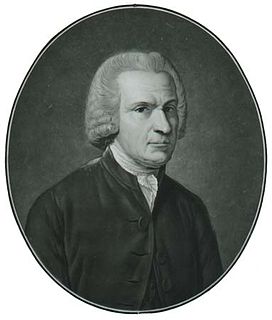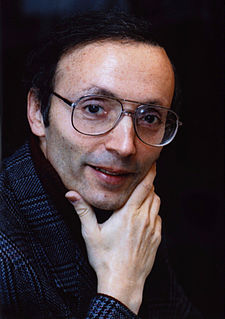A Quote by Edith Sitwell
Eccentricity is not, as some would believe, a form of madness. It is often a kind of innocent pride, and the man of genius and the aristocrat are frequently regarded as eccentrics because genius and aristocrat are entirely unafraid of and uninfluenced by the opinions and vagaries of the crowd.
Related Quotes
Either I'm a genius or I'm mad, which is it? "No," I said, "I can't be mad because nobody's put me away; therefore I'm a genius." Genius is a form of madness and we're all that way. But I used to be coy about it, like me guitar playing. But if there's such a thing as genius - I am one. And if there isn't, I don't care.
To the feudal aristocracy and the aristocracy of the spirit, nobility derives from diametrically opposite sources. The glory of the feudal aristocrat is in being a link in the longest possible chain of ancestors. The glory of the aristocrat of the spirit is in having no ancestors - or having as few as possible. If an artist is his own ancestor, if he has only descendents, he enters history as a genius; if he has few ancestors, or is related to them distantly, he enters history as a talent.
Within the universe of the extraordinary, those qualities we designate to human concepts of gender are often shared, exchanged, or even completely obliterated. Because of this mixture of traits, these twins called Genius and Madness often appear to be the same thing. They both have a tendency to blur the lines of what we call norms, or established reality. They both, when we study that grand tapestry known as history and modern-day society, tend to stand out in much bolder relief than other figures. -- from Dancing with Madness, Dancing with Genius
The book, the college, the school of art, the institution of any kind, stop with some past utterance of genius. . . . They look backward and not forward. But genius looks forward: the eyes of man are set in his forehead, not in his hindhead: man hopes: genius creates. Whatever talents may be, if the man create not, the pure efflux of the Deity is not his; - cinders and smoke there may be, but not yet flame.
The Man of Genius may at the same time be, indeed is commonly, an Artist, but the two are not to be confounded. The Man of Genius,referred to mankind, is an originator, an inspired or demonic man, who produces a perfect work in obedience to laws yet unexplored. The artist is he who detects and applies the law from observation of the works of Genius, whether of man or nature. The Artisan is he who merely applies the rules which others have detected. There has been no man of pure Genius, as there has been none wholly destitute of Genius.
I regret that I must so continually use the word genius, as if that should apply only to a caste as well defined from those below as income-tax payers are from the untaxed. The word genius was very probably invented by a man who had small claims on it himself; greater men would have understood better what to be a genius really was, and probably they would have come to see that the word could be applied to most people. Goethe said that perhaps only a genius is able to understand a genius.
Kelsier smiled. 'It means that you, Vin, are a very special person. You have a power that most high noblemen envy. It is a power that, had you been born an aristocrat, would have made you one of the most deadly and influential people in all of the final empire.' Kelsier leaned forward again. 'But, you weren't born an aristocrat. You're not noble, Vin. You don't have to play by their rules--and that makes you even more powerful.
Neither can we admit that definition of genius that some would propose--"a power to accomplish all that we undertake;" for we might multiply examples to prove that this definition of genius contains more than the thing defined. Cicero failed in poetry, Pope in painting, Addison in oratory; yet it would be harsh to deny genius to these men.





































